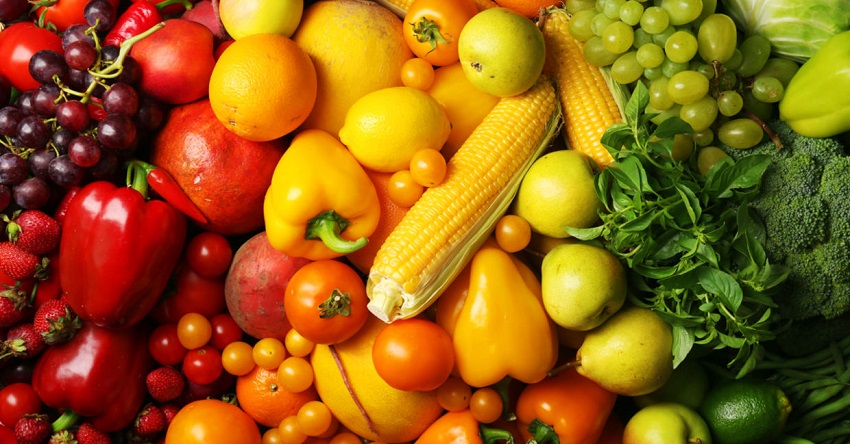
25 Jul What Are Phytonutrients and Why Are They Important?
Phytonutrients, also known as phytochemicals, are natural compounds found in plants that play a crucial role in their growth and development. These bioactive compounds are not considered essential nutrients like vitamins and minerals, but they offer numerous health benefits when consumed by humans. In this article, we will explore the world of phytonutrients, why they are important, and how incorporating them into our diets can contribute to overall well-being. The article is submitted by improvelifehere.com
The Power of Phytonutrients
Phytonutrients encompass a vast array of compounds, such as flavonoids, carotenoids, polyphenols, and phytoestrogens, among others. Each of these phytochemicals holds unique properties that contribute to the vibrant colors, scents, and flavors we find in different plant-based foods. More importantly, these compounds are powerful antioxidants that protect plants from environmental stressors, such as ultraviolet radiation and pests. Discover the phytonutrients fruits and vegetables.
The Health Benefits of Phytonutrients
When we consume phytonutrients through fruits, vegetables, whole grains, nuts, and seeds, we can experience various health benefits. Some of the key advantages include:
Antioxidant Properties
Phytonutrients act as antioxidants in our bodies, neutralizing harmful free radicals that can damage cells and lead to chronic diseases. By reducing oxidative stress, these compounds help support a healthy immune system and overall cellular function.
Anti-Inflammatory Effects
Many phytochemicals possess anti-inflammatory properties, which can help in alleviating inflammation in the body. Chronic inflammation is linked to several health conditions, including cardiovascular diseases, arthritis, and certain cancers.
Heart Health
Certain phytonutrients, such as flavonoids, have been associated with promoting heart health. They can improve blood circulation, reduce blood pressure, and lower the risk of heart disease.
Cancer Prevention
Studies suggest that phytonutrients may play a role in cancer prevention due to their antioxidant and anti-inflammatory effects. They may help protect cells from mutations that lead to cancer development.
Digestive Health
Fiber-rich plant foods that contain phytonutrients are beneficial for digestive health. They support regular bowel movements, promote gut health, and reduce the risk of digestive disorders.
How to Incorporate Phytonutrients into Your Diet
To reap the benefits of phytonutrients, it is essential to include a diverse range of plant-based foods in your diet. Here are some tips to get started:
Eat a Rainbow of Fruits and Vegetables
Different colored fruits and vegetables indicate the presence of specific phytonutrients. Try to consume a variety of colors, such as red, orange, yellow, green, blue, and purple, to ensure you are getting a broad spectrum of these beneficial compounds.
Choose Whole Grains
Opt for whole grains like quinoa, brown rice, and oats, which contain phytonutrients and offer more nutritional value than refined grains.
Include Nuts and Seeds
Nuts and seeds are not only rich in healthy fats but also packed with phytonutrients. Sprinkle them over salads or enjoy them as a snack for an extra boost of nutrition.
Brew Some Tea
Tea, especially green tea, is an excellent source of phytonutrients, particularly catechins, which have potent antioxidant properties.
Embrace a Plant-Based Lifestyle
Adopting a plant-based lifestyle can significantly increase your intake of phytonutrients. Whether you choose to go fully plant-based or simply incorporate more plant foods into your diet, you can experience improved overall health and well-being.
Conclusion
Phytonutrients are a diverse group of bioactive compounds found in plants that offer various health benefits. From their antioxidant properties to their role in preventing chronic diseases, these phytochemicals play a crucial role in maintaining our well-being. By including a colorful array of fruits, vegetables, whole grains, nuts, and seeds in our diet, we can harness the power of phytonutrients and pave the way to a healthier and more vibrant life.
FAQs
Q1: Are phytonutrients only found in fruits and vegetables?
A1: While fruits and vegetables are excellent sources of phytonutrients, they can also be found in other plant-based foods like whole grains, nuts, seeds, and legumes.
Q2: Can phytonutrients replace the need for vitamin supplements?
A2: While phytonutrients offer numerous health benefits, they should complement a well-balanced diet and not replace essential vitamins and minerals obtained from food or supplements.
Q3: Can phytonutrients help with weight management?
A3: Certain phytonutrients, like flavonoids, have been associated with promoting weight loss and improving metabolic health.
Q4: Can children benefit from consuming phytonutrients?
A4: Absolutely! Phytonutrients are beneficial for individuals of all ages, and including them in a child’s diet can contribute to their growth and development.
Q5: Can phytonutrients prevent all types of cancers?
A5: While some phytonutrients may have anticancer properties, it is essential to maintain a balanced diet and engage in other healthy lifestyle practices to reduce the risk of cancer.

No Comments